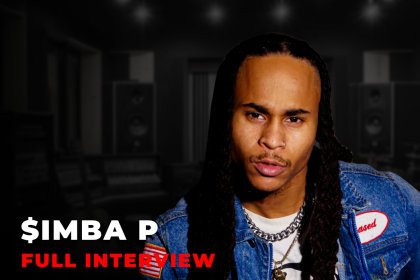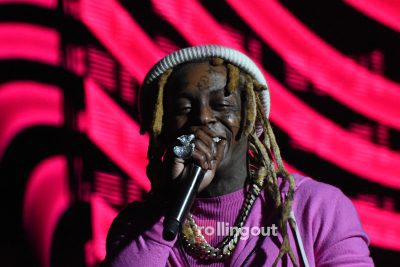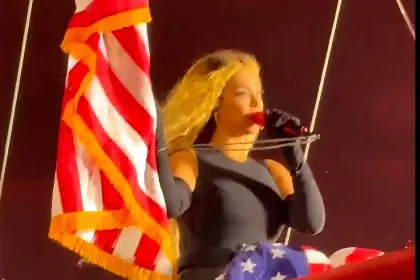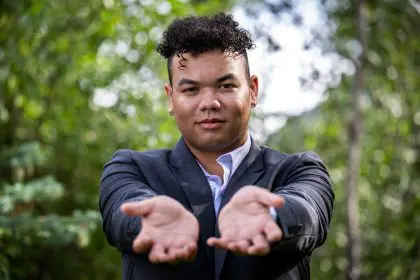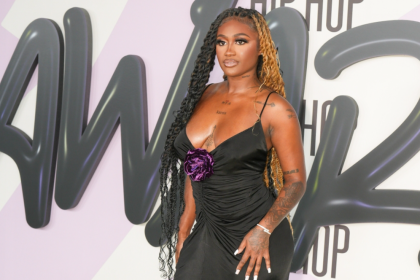June marks the annual observance of Black Music Month, a nationwide celebration recognizing the profound contributions of African American artists to the American musical landscape. This cultural observance, established to honor the rich heritage of Black musical traditions, encompasses genres from jazz and blues to hip-hop and contemporary R&B that have fundamentally shaped popular music worldwide.
Music festivals across the United States are showcasing the diversity and continuing evolution of Black musical expression through performances, educational programming, and community engagement activities. These events serve not only as entertainment venues but as cultural preservation efforts that connect audiences with the historical and ongoing significance of African American musical innovation.
The festival circuit during Black Music Month provides opportunities for both emerging and established artists to share their talents while educating audiences about the deep roots and continuing branches of Black musical traditions. These gatherings represent more than concerts, functioning as community celebrations that strengthen cultural bonds and promote understanding of music’s power to unite diverse populations.
Durag Fest transforms Charlotte into cultural celebration hub
Charlotte, North Carolina becomes the epicenter of contemporary Black culture during the June 21-22 weekend as Durag Fest takes over Camp North End with a comprehensive celebration of music, entrepreneurship, and community engagement. The two-day festival represents a new model of cultural events that combine entertainment with economic empowerment and social connection.
The festival’s programming extends beyond musical performances to include educational panels addressing topics relevant to Black communities, creating spaces for meaningful dialogue alongside celebration. Local entrepreneurs and creators showcase their products and services through marketplace opportunities that highlight the economic creativity and business acumen within Black communities.
Camp North End provides an ideal venue for this multifaceted event, offering sufficient space for diverse programming while maintaining the intimate atmosphere that encourages authentic community interaction. The festival’s emphasis on local participation reflects broader trends in cultural events toward supporting regional talent and business development.
Durag Fest’s approach to combining entertainment with community development represents an evolution in festival programming that recognizes the interconnected nature of cultural expression, economic opportunity, and social cohesion within Black communities.
South Georgia Gospel Music Festival brings faith and community together
Downtown Valdosta, Georgia hosts the South Georgia Gospel Music Festival on June 8, offering free admission to encourage broad community participation in this celebration of gospel music’s enduring spiritual and cultural significance. The festival’s accessibility reflects gospel music’s democratic tradition of bringing people together regardless of economic circumstances.
Gospel music represents one of the foundational genres of Black musical expression, combining African musical traditions with Christian worship practices to create a distinctive art form that has influenced countless other musical styles. The festival provides audiences with opportunities to experience both traditional and contemporary gospel performances while supporting local charitable causes.
The family-friendly programming ensures that gospel music’s message of hope and community reaches across generational lines, introducing younger audiences to musical traditions that have sustained Black communities through historical challenges and celebrations. The downtown location creates a festive atmosphere that transforms the city center into a gathering place for cultural celebration.
The festival’s community focus demonstrates gospel music’s continuing role as a source of social cohesion and spiritual strength within Black communities, while its free admission policy ensures that economic barriers do not prevent participation in this important cultural event.
Capital Jazz Fest showcases premier talent at renowned venue
The Merriweather Post Pavilion in Columbia, Maryland hosts the prestigious Capital Jazz Fest from June 6-8, attracting music enthusiasts from across the nation for three days of jazz, soul, and R&B performances. This established festival has built a reputation for presenting both legendary artists and emerging talents in an intimate outdoor setting.
The festival’s programming demonstrates the continuing evolution of jazz and related genres, featuring artists who honor traditional forms while pushing creative boundaries. The venue’s excellent acoustics and comfortable seating arrangements create optimal conditions for experiencing the nuanced performances that define quality jazz presentation.
Beyond musical performances, the festival includes craft vendors and food offerings that create a complete cultural experience for attendees. These additional elements reflect the festival’s understanding that music appreciation involves multiple senses and that successful events must address diverse audience needs and interests.
The Capital Jazz Fest’s multi-day format allows for comprehensive programming that can accommodate various jazz subgenres and related musical styles, ensuring that diverse audience preferences are represented while maintaining high artistic standards throughout the event.
Black Music Fest delivers diverse programming in Delaware
Delaware’s G & R Recreation Campground becomes the site of an intensive musical celebration on June 7 as the Black Music Fest presents a diverse lineup spanning hip-hop, jazz, and contemporary R&B. The festival’s broad programming reflects the expansive nature of Black musical expression and its influence across multiple genres.
The campground setting provides a unique festival experience that combines the intimacy of smaller venues with the community atmosphere of outdoor gatherings. This environment encourages interaction between performers and audiences while creating opportunities for spontaneous musical collaboration and cultural exchange.
The festival’s commitment to representing multiple genres within Black music traditions demonstrates recognition that these artistic forms have evolved and diversified while maintaining connections to shared cultural roots. Hip-hop’s presence alongside jazz reflects the continuing evolution of Black musical expression and its adaptation to contemporary cultural circumstances.
The single-day format creates an intensive celebration that concentrates diverse programming into a compact timeframe, allowing audiences to experience the breadth of Black musical traditions without requiring extended travel commitments.
Miles Davis Jazz Festival honors hometown hero’s legacy
Alton, Illinois celebrates its native son Miles Davis through the annual jazz festival bearing his name on June 7 at Post Commons, featuring local artists who continue the innovative tradition Davis established during his revolutionary career. The festival’s 20th anniversary next year demonstrates the enduring relevance of Davis’s musical contributions and their continuing influence on contemporary jazz.
Local performers including Chris Jarden and Saman Swanson represent the ongoing vitality of the regional jazz scene that Davis helped inspire. Their participation connects contemporary jazz expression with its historical roots while demonstrating how musical traditions survive and evolve through community support and artistic dedication.
The festival’s location in Davis’s hometown creates a meaningful connection between the music and its cultural origins, providing audiences with insights into the environmental and social factors that shaped one of jazz’s most influential figures. This geographic connection adds depth to the musical experience by contextualizing artistic achievement within community history.
Post Commons provides an appropriate venue for honoring Davis’s legacy, offering space for both intimate performances and larger ensemble presentations that reflect the range of musical approaches Davis explored throughout his career.
Levitt AMP Baton Rouge series celebrates blues heritage
Baton Rouge, Louisiana’s Scotlandville Plaza hosts the Levitt AMP music series throughout June, offering free Saturday concerts that highlight the city’s significant blues heritage and the continuing contributions of Black artists to Louisiana’s musical landscape. The series’ commitment to free admission ensures broad community access to professional musical presentations.
Louisiana’s central role in blues development makes Baton Rouge an ideal location for celebrating this foundational genre of Black musical expression. The state’s unique cultural mixture of African, Caribbean, and American influences created fertile ground for blues innovation that continues to influence contemporary music worldwide.
The series format allows for extended programming that can accommodate various blues styles and related genres, providing comprehensive exposure to the diversity within blues traditions. Saturday scheduling makes these concerts accessible to working families while creating regular opportunities for community gathering and cultural celebration.
Scotlandville Plaza’s location within the African American community strengthens connections between the music and its cultural origins while providing a familiar and welcoming environment for audiences who may be most directly connected to blues traditions and their historical significance.
Saratoga Jazz Festival attracts premier artists to Northeast venue
The Saratoga Performing Arts Center in Saratoga Springs, New York hosts the prestigious Saratoga Jazz Festival on June 28-29, featuring renowned artists including Gary Clark Jr. and Trombone Shorty. This festival represents one of the Northeast’s premier jazz events, attracting both serious music enthusiasts and casual listeners seeking high-quality entertainment.
The festival’s ability to attract nationally recognized artists demonstrates the continuing commercial viability and artistic relevance of jazz as a performance genre. Gary Clark Jr.’s inclusion reflects the festival’s recognition of blues-influenced artists who maintain connections to traditional forms while developing contemporary approaches to Black musical expression.
Trombone Shorty’s participation highlights New Orleans jazz traditions and their continuing influence on contemporary performance, connecting audiences with one of the most significant geographic centers of jazz development. His presence also demonstrates how traditional jazz instruments remain relevant in contemporary musical contexts.
The Saratoga Performing Arts Center provides an exceptional venue for jazz presentation, combining excellent acoustics with comfortable seating arrangements and food service options that create optimal conditions for extended musical appreciation and social interaction.
Cultural significance extends beyond entertainment
These festivals collectively demonstrate the continuing vitality and diversity of Black musical traditions while serving important cultural preservation and education functions. They provide opportunities for intergenerational knowledge transfer, allowing older community members to share musical history and cultural context with younger participants who may be discovering these traditions for the first time.
The geographic distribution of these events across multiple states illustrates the national scope of Black musical influence and the widespread recognition of its cultural importance. From North Carolina to New York, communities are investing in programming that celebrates and preserves these musical traditions while adapting them to contemporary circumstances and audience needs.
The festivals also serve economic development functions by attracting visitors to local communities, supporting regional businesses, and providing performance opportunities for both established and emerging artists. This economic impact demonstrates how cultural celebration can generate practical benefits that extend beyond immediate entertainment value.
Educational and community building aspects
Many of these festivals incorporate educational programming that helps audiences understand the historical and cultural contexts surrounding Black musical traditions. This programming serves important functions in cultural preservation while helping diverse audiences appreciate the depth and complexity of these artistic forms.
Community building represents another significant aspect of these events, as they create opportunities for social connection and cultural identity reinforcement within Black communities while providing welcoming spaces for others to learn about and appreciate these musical traditions. The festivals demonstrate how music can serve as a bridge between different cultural groups while maintaining its specific cultural significance.
The combination of celebration and education in these festivals reflects a sophisticated understanding of how cultural events can serve multiple purposes simultaneously, honoring artistic traditions while promoting broader social understanding and community cohesion.


